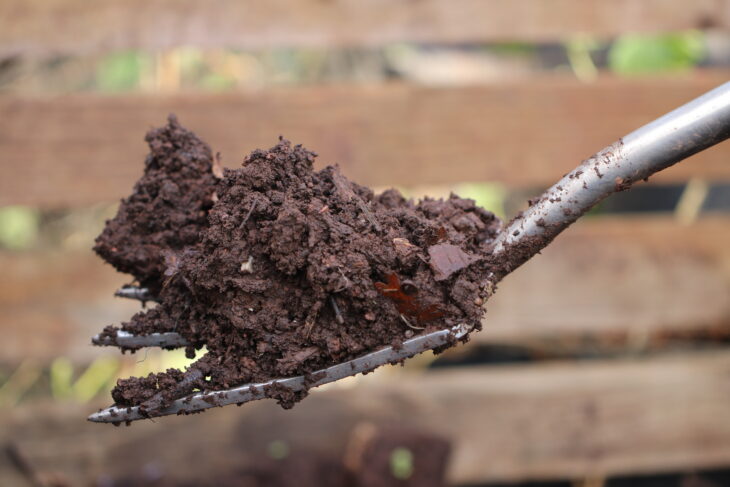Soil is more than just dirt
,

March 13-19 is UK Compost week and, if you’re not already excited about the magic of making compost, hopefully by the end of this blog you will be.
Healthy soils need a world full of microorganisms and organic matter. This is a world of living breathing things, cooperating and competing in search of food, allies, and safety. When we help to make this miniature world it’s called compost. We must make compost with the help of microorganisms, worms, and other invertebrates (insects and other bugs) who break down natural materials from plants and our food scraps. Our food and garden scraps still have resources, vitamins and minerals. These go to waste if thrown into a bin bag and sent to a dump. Our composting allies, especially the ones we can’t see like bacteria and fungi, take these scraps and turn them into soil that can support plants and other life.
Compost needs a balance of nitrogen (green material), carbon (brown material) and oxygen to create a healthy environment for the soil creators. Our role is to add the right balance of material so that the conditions are right for our allies. The easiest way to tell this is by smell. Compost should not have an offensive smell. It should smell either neutral or distinctly like soil. Sour and foul smells mean the compost is too wet or does not have enough air. Adding dry (brown) material such as cardboard, fallen leaves, or shredded paper (without plastic) can help dry out the compost while stirring your compost gives it oxygen. If you find it hard to physically turn and mix your compost, you can try sticking a large stick, like a broom handle, into the compost and stirring to create holes to let in air.
To get the best compost start by adding equal amounts brown and green material. You can add more brown if the compost becomes too wet or starts to smell. Avoid adding oily or cooked foods which will slow down your compost. Cooked food and meat need higher temperatures than you can reach in a home compost to kill off harmful bacteria in these foods. Instead stick to vegetable and plant scraps, coffee grounds, and eggshells. It can also be helpful to have two compost bins or piles, so that when one is full you can leave it alone to finish and have a second one to place your scraps while you wait.
Proper composting reduces pollution and greenhouse gas emissions, creates healthier soils for plants and helps prevent erosion and flooding. We lose millions of tonnes of topsoil to erosion in the UK each year and even more is depleted of nutrients or organic matter. Creating our own compost can be a step towards living more sustainably in general.
Hopefully this week many people will learn about the value of composting. With good compost we can all leave our soils better than we found them. Follow our page on Facebook for all our updates @CumbernauldLivingLandscape
